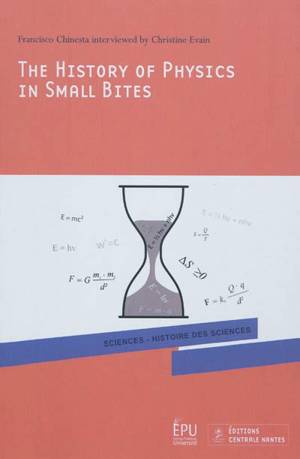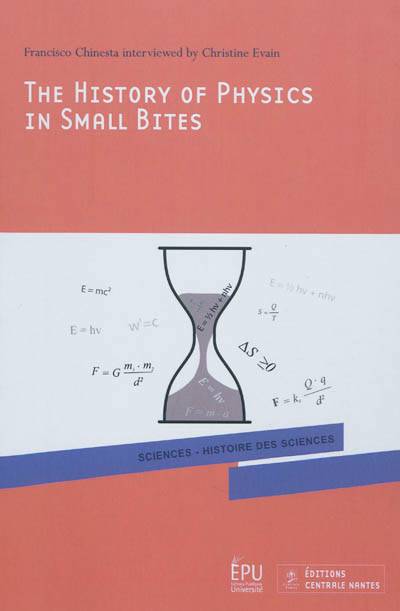
- Retrait gratuit dans votre magasin Club
- 7.000.000 titres dans notre catalogue
- Payer en toute sécurité
- Toujours un magasin près de chez vous
- Retrait gratuit dans votre magasin Club
- 7.000.0000 titres dans notre catalogue
- Payer en toute sécurité
- Toujours un magasin près de chez vous
The small history of physics in small bites
Francisco Chinesta, Christine EvainDescription
How long did it take to prove Aristotle's ideas about falling objects wrong? How did science evolve
from Democritus, the first philosopher to talk about the existence of atoms, to today's theories
concerning the universe? Can the world now be explained in the form of equations?
This volume - articulated in three parts: I. Classical Physics II. Modern Physics and III. Questions
about the universe - answers all basic questions concerning the history of physics and physics. The
approach chosen here is the one adopted by Franscico Chinesta for his Ecole Centrale de Nantes
course. Although the content is targeted at top-level engineering students, this volume also addresses
a non-scientific audience, giving everyone a chance to marvel at scientific research.
Chinesta's chronological approach allows readers to understand how the world has gradually
revealed its secrets through scientific observation, hypotheses, counterhypotheses and
experimentation. Meanwhile a whole range of scientific phenomena is explained, from why the sky
is blue to what is a black hole.
Because of the simple language of the volume and thanks to hundreds of illustrations, physics
becomes accessible to non-specialists and the latest research development available to all.
Spécifications
Parties prenantes
- Auteur(s) :
- Editeur:
Contenu
- Nombre de pages :
- 278
- Langue:
- Anglais
Caractéristiques
- EAN:
- 9782748356571
- Date de parution :
- 27-10-10
- Format:
- Livre broché
- Dimensions :
- 170 mm x 240 mm
- Poids :
- 392 g







